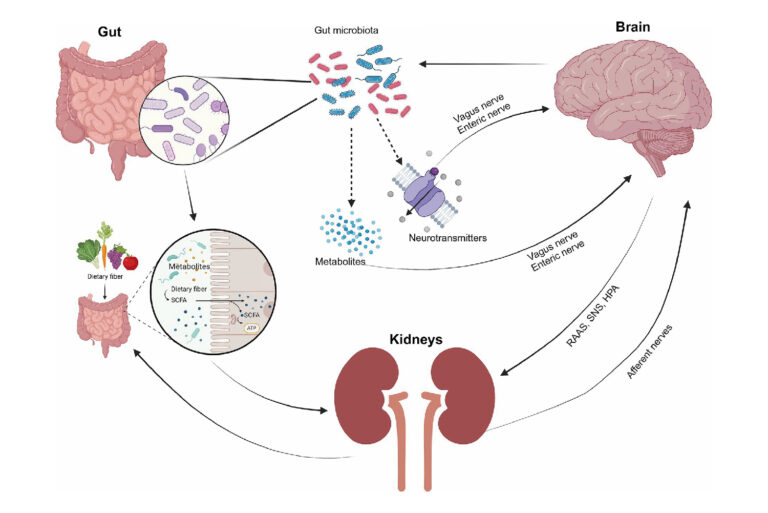How Gut Bacteria, the Brain & Kidneys Connect: Insights from a New Review
by Anna Sandhu | Aug 04, 2025
Reviewed by Dr. Arun, M.Pharm., PGDRA, Ph.D.

Your body is like a team of parts that talk to each other: your gut, your brain, and your kidneys. A new review looked into how the tiny living things in your gut (the gut microbiota) influence both your brain and kidneys. Together, this connection is called the gut-brain-kidney axis. The study focused on how this axis matters in people with chronic kidney disease (CKD).
Here’s the story in simple words:
Your gut is home to trillions of bacteria and microbes. These beings help break down food, make helpful chemicals, and keep your immune system in check. When gut bacteria are healthy and balanced, your body works better. But when the gut microbiome is out of balance (called dysbiosis), it can cause trouble.
In people with CKD, the kidneys cannot filter the blood properly. The review shows that when the gut microbiome is out of balance, it can make harmful compounds build up. These compounds travel to the kidneys and brain, causing inflammation, damage, and disrupting their normal function.
Also, the brain and gut talk to each other continuously. That means gut changes can affect brain health (mood, memory, nerves) and brain signals can affect how the gut works. And the kidneys join this circle. The review suggests that in CKD, the brain-gut-kidney axis is off balance, which may worsen the disease.
Why does this matter? Because it gives us a new way to think about kidney health. Instead of only focusing on the kidneys, you also look at the gut and brain. The review says: if we support the gut microbiome (with good diet, fiber, maybe probiotics) and calm the brain-gut signals, we might slow the damage to kidneys.
For example: healthier gut bacteria produce short-chain fatty acids (SCFAs) that protect gut lining and reduce harmful waste. They help ease the “leaky gut” effect where toxins pass into the bloodstream and reach other organs. If we prevent that leaking, the kidneys and brain don’t get as much damage.
In short: This review points out a big idea, the health of your gut microbes influences your brain and kidneys in a team-effort. If one part falters (gut → brain → kidney), the other parts may suffer. While it does not provide a simple cure, it suggests that focusing on gut health and brain-gut communication could be an important part of keeping kidneys healthier.
More Information: The influence of gut microbiota on the gut-brain-kidney axis and its implications for chronic kidney disease. DOI: https://doi.org/10.3389/fmicb.2025.1535356
